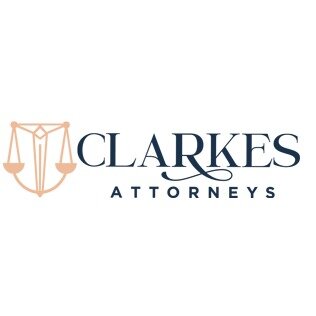Best Education Law Lawyers in Malawi
Share your needs with us, get contacted by law firms.
Free. Takes 2 min.
Or refine your search by selecting a city:
List of the best lawyers in Malawi
About Education Law in Malawi
Education Law in Malawi encompasses the legal frameworks and policies governing the education system within the country. It is designed to ensure the provision of quality education for all, adhere to international education standards, and protect the rights of students, teachers, and educational institutions. Key statutes in this area include the Education Act, the Higher Education Act, and various government policies aimed at promoting inclusive and equitable education.
Why You May Need a Lawyer
There are several scenarios in which individuals or organizations might seek legal advice in the realm of Education Law in Malawi. These include disputes over school fees, issues of teacher employment and contracts, the rights of students with special needs, and cases of educational malpractice or negligence. Additionally, schools or educational institutions may require legal guidance when dealing with regulatory compliance or accreditation processes.
Local Laws Overview
Key legal aspects of Education Law in Malawi include compulsory education requirements, the regulation of private and public schools, teacher qualifications, curriculum standards, and student rights. The Education Act mandates free primary education to ensure nationwide access to basic education. The law also enforces measures against discrimination in the education system and sets standards for safe and conducive learning environments.
Frequently Asked Questions
What age is compulsory school attendance required in Malawi?
Compulsory school attendance in Malawi is required from ages 6 to 14, aligning with the primary education cycle.
Are there legal provisions for inclusive education in Malawi?
Yes, the Education Act promotes inclusive education, ensuring that children with disabilities or special needs have access to appropriate educational opportunities.
Can parents be prosecuted for failing to send their children to school?
Yes, under the Education Act, parents who fail to send their children to school without a lawful excuse can face legal consequences.
What regulations exist for private schools?
Private schools in Malawi must comply with government standards for curriculum, teacher qualifications, and infrastructure, and they require registration and regular inspections.
How is teacher qualification regulated?
The government requires that teachers meet specific qualifications and continuous professional development standards to maintain teaching licenses in Malawi.
What can be done if a student faces discrimination in school?
Legal recourse is available for students facing discrimination, including filing a complaint with the education authorities or seeking legal assistance to address rights violations.
Are school fees legally enforceable in Malawi?
Yes, while primary education is free, secondary schools may charge fees, which are legally enforceable. However, disputes can arise if changes in fee structures are not communicated or unjustified.
What are the rights of students regarding educational records?
Students and parents have the right to access educational records, ensuring transparency and the ability to address any discrepancies found.
How are disputes between teachers and schools resolved legally?
Such disputes can often be resolved through negotiations or mediation, but legal action can be taken if necessary, often involving employment law principles.
What steps can be taken against educational malpractice?
Legal action can be pursued for cases of educational malpractice, which might include fraudulent credentials or failure to deliver promised educational services.
Additional Resources
To gain further insights into Education Law in Malawi, you can consult the Ministry of Education, consult with organizations like the Human Rights Commission of Malawi, or engage with local NGOs focusing on educational rights, such as the Civil Society Education Coalition (CSEC).
Next Steps
If you require legal assistance in Education Law in Malawi, consider taking the following steps:
- Identify the specific nature of your legal issue.
- Consult with a legal professional specializing in Education Law. This can be done through the Malawi Law Society or by seeking recommendations from trusted community networks.
- Prepare all necessary documentation and evidence relating to your case.
- Discuss your options with your lawyer, including possible legal actions or alternative dispute resolution methods.
- Follow your lawyer's guidance on the best course of action tailored to your situation and the legal framework of Malawi.
Lawzana helps you find the best lawyers and law firms in Malawi through a curated and pre-screened list of qualified legal professionals. Our platform offers rankings and detailed profiles of attorneys and law firms, allowing you to compare based on practice areas, including Education Law, experience, and client feedback.
Each profile includes a description of the firm's areas of practice, client reviews, team members and partners, year of establishment, spoken languages, office locations, contact information, social media presence, and any published articles or resources. Most firms on our platform speak English and are experienced in both local and international legal matters.
Get a quote from top-rated law firms in Malawi — quickly, securely, and without unnecessary hassle.
Disclaimer:
The information provided on this page is for general informational purposes only and does not constitute legal advice. While we strive to ensure the accuracy and relevance of the content, legal information may change over time, and interpretations of the law can vary. You should always consult with a qualified legal professional for advice specific to your situation.
We disclaim all liability for actions taken or not taken based on the content of this page. If you believe any information is incorrect or outdated, please contact us, and we will review and update it where appropriate.
Browse education law law firms by city in Malawi
Refine your search by selecting a city.











